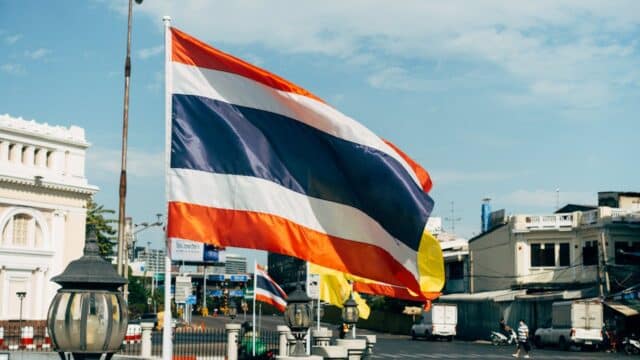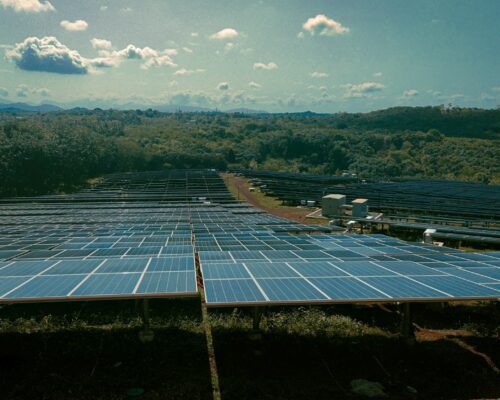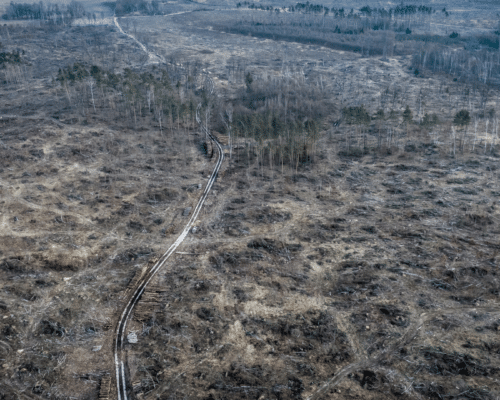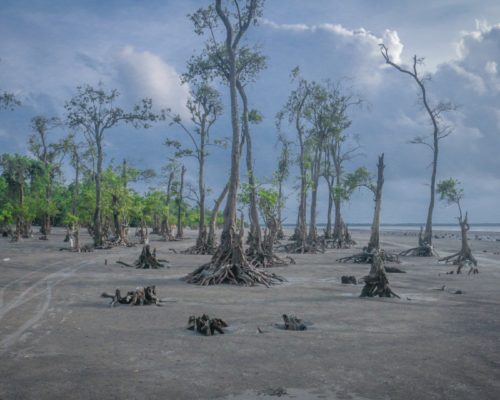Sri Lanka’s Worst Economic Crisis: Is There a Way Out?
02 September 2022 – by Heba Hashem
Listen to the full episode on: Apple Podcasts, Spotify, Google Podcasts and Stitcher
2022 Sri Lankan Political Crisis
Sri Lanka’s crisis is the worst that the country has seen in decades. Instead of the usual hordes of excited tourists, the summer of 2022 in the small island nation witnessed thousands of protestors flooding the capital, Colombo, and taking over the presidential palace.
Fed up with the current condition of Sri Lanka’s economy, the protestors forced President Gotabaya Rajapaksa to flee and eventually resign. His departure on July 14 ended the family’s nearly 20 years of political domination.
Days later, Sri Lankan MPs elected Ranil Wickremesinghe – a six-time prime minister – as Sri Lanka’s new president, despite his unpopularity with the public.
Why is Sri Lanka in Crisis?
The roots of the energy and economic crisis and political turmoil go back to years of economic mismanagement by different governments, according to Chair of Friends of the Earth International Hemantha Withanage – a network of environmental organisations in 73 countries.
“People in the country are not happy with the political system. They’ve demanded that all 225 politicians in the parliament, plus the president, leave and let the system change,” Withanage said in a podcast interview with Energy Tracker Asia.
Since transitioning into a lower middle-income country in 1997, the country has been increasingly borrowing from private lenders at relatively high interest rates and with much shorter repayment durations.
Prior to that, its debt had mostly consisted of low-interest-rate loans from multilateral organizations.
Sri Lanka’s Deepening Foreign Debt
Sri Lanka’s improved status encouraged private lenders to lend it money and venture capital funds to invest in infrastructure projects.
“We used to get concessional loans from the Asian Development Bank, the World Bank [and other multilateral banks], with 1% to 1.5% interest rates,” said Withanage, who is also the co-founder of the Centre for Environmental Justice in Sri Lanka.
“But private capital creditors have invested in Sri Lanka for 6% to 15% interest rates. So, today, more than 50% [of the] Sri Lanka’s debt belongs to these private creditors,” he said.
The pandemic in 2020 hit the small island nation hard, like other developing countries, as the dollars and foreign currency that used to come through tourism and migrant workers abroad significantly dropped. Foreign reserves dried up.
“By September 2020, Sri Lanka had already surpassed the debt sustainability level, which was at the beginning of the current regime. This means that debt unsustainability issues started during previous regimes,” explained Withanage.
As tourism finally started to recover in the spring of 2021, Sri Lanka decided to ban chemical fertiliser imports, claiming the move aimed to transition the nation into organic farming.
In reality, the government had no money to buy fertilisers, according to Withanage. This hasty decision, which was later reversed, prompted a surge in food prices.
Fuel Shortages Trigger Economic Collapse
Then came Russia’s invasion of Ukraine in February 2022, which pushed up commodity prices and made imported fuel and food even harder to afford for Sri Lankans.
“Suddenly, we saw everything going into a crisis. Because without dollars, we cannot buy fuel such as liquefied petroleum gas (LPG), diesel, petrol and coal. Not having energy sovereignty led to many of the crises we’re facing today,” said Withanage.
When the Sri Lankan government did not have enough dollars to pay for energy shipments of diesel and petrol, suppliers refused to unload these shipments.
As a result, huge queues spread across the country. From taxi drivers to car salesmen, everyone had to wait for many hours for fuel. Similarly, people had no choice but to stand for long periods as they waited to refill their LPG cylinders.
The fuel shortages have affected almost all aspects of daily life, interrupting schools and government services and limiting people’s ability to find and go to work.
Fishing boats, too, haven’t had diesel or kerosene to catch fish and hospitals haven’t been able to use their equipment due to power cuts.
Attempts to Improve Energy Services – International Monetary Fund
It was at this point that people from all walks of life came out into the streets, demanding that the government provide them with adequate diesel and petrol.
In response, the country recently introduced a QR-code system for fuel distribution, capping the amount of petrol and diesel that can be refuelled by vehicles. However, Withanage does not expect this measure to last long.
The country has also secured financial support from international financial institutions like the World Bank that will address LPG needs. However, it is still unclear how the country intends to repay this debt. Under this financial crisis, debt repayments will become harder.
“Unfortunately, the majority of people and politicians think that going to the International Monetary Fund is the solution. I would disagree because what they’re going to do is to bail out all these private creditors. That loan will only add to our debt,” noted Withanage.
Energy Crisis May Impede Climate Progress
Sri Lanka’s crisis is now jeopardising its climate ambitions. The country had planned to increase renewable energy use to 70% by 2030, up from 49.91% in 2019. It also pledged to become carbon-neutral by 2050 and to cut emissions by 14.5% by 2030.
However, as the nation grapples with energy security, Ceylon Electricity Board – Sri Lanka’s largest electricity company – is calling for Chinese and Indian coal power plants to be built in the country, according to Withanage.
“They’re not engaging with civil society. They’ve changed the cabinet ministers, but it’s the same set of people and the same set of advice they’re giving,” he said.
“For example, they’ve appointed a climate advisor to the president but he’s a politician; he doesn’t have any clue about climate change.”
Human Rights Need to be Part of the Solution
To make matters worse, the new leadership has been accused of a violent crackdown on protests, arbitrarily detaining activists, lawyers and journalists.
Human Rights Watch condemned this crackdown while the United Nations said any attempt to mitigate the economic crisis should have human rights at its core.
“Instead of arresting protestors, they should’ve created a platform to understand what system change people have been talking about. Unfortunately, this is not happening right now – not in the parliament, not in society, not even at the media level,” concluded Withanage.
–




